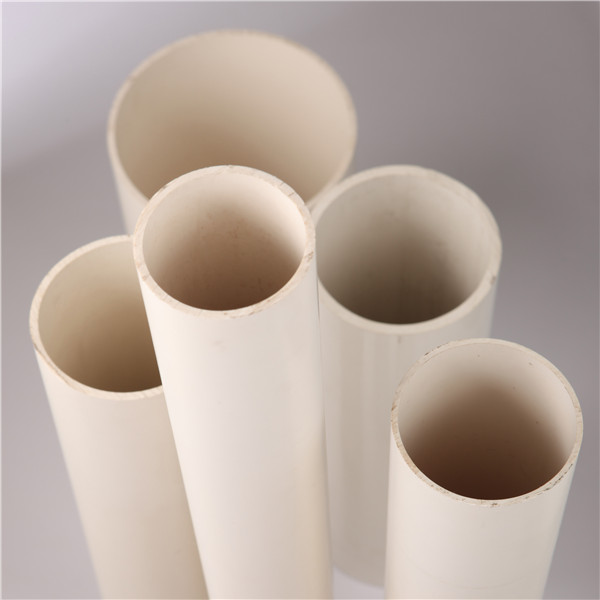Nov . 21, 2024 06:25 Back to list
pvc hose pipe
Understanding PVC Hose Pipes Versatility and Applications
PVC (Polyvinyl Chloride) hose pipes have become essential components in various industries and applications due to their remarkable properties, such as flexibility, durability, and cost-effectiveness. These hoses are made from a synthetic polymer that can be formulated to meet specific performance criteria, making them suitable for a wide range of uses. This article explores the features, advantages, and applications of PVC hose pipes, highlighting why they are a preferred choice in many settings.
What is PVC Hose Pipe?
PVC hose pipes are flexible tubing made from polyvinyl chloride, a type of plastic that is known for its resilience and resistance to abrasion. They are typically manufactured in various diameters and lengths to accommodate different needs. Because of the versatility of PVC, these hoses can be designed to be transparent or opaque, rigid or flexible, and can come with various reinforcement types, including fabric or wire, to enhance strength and functionality.
Key Features of PVC Hose Pipes
1. Chemical Resistance PVC hose pipes are resistant to many chemicals, making them suitable for handling various liquids, including acids, alkalis, and other industrial solvents. However, it is crucial to check compatibility for specific applications.
2. Lightweight and Flexible One of the most advantageous features of PVC hoses is their lightweight nature, which makes them easy to handle and transport. Their flexibility allows for easy maneuverability, making them ideal for applications where bending and twisting are necessary.
3. Low Cost PVC hoses are relatively inexpensive compared to other materials, which contributes to their widespread use in both domestic and commercial applications. Their cost-effectiveness does not compromise quality, as they are durable and long-lasting.
4. Weather Resistance PVC hose pipes can withstand various weather conditions, making them suitable for outdoor use. They do not deteriorate easily under UV exposure, further enhancing their longevity.
pvc hose pipe

5. Multiple Sizes and Configurations The availability of PVC hose pipes in various sizes and configurations makes them versatile for numerous applications, from gardening to industrial use.
Applications of PVC Hose Pipes
1. Agriculture In farming, PVC hose pipes are commonly used for irrigation and transporting water. Their resistance to chemicals allows farmers to use them for fertilization and crop protection without concern for hose degradation.
2. Construction PVC hoses are utilized on construction sites for both water supply and drainage. They can handle heavy-duty tasks, such as transporting materials and fluids without breaking down.
3. Industrial Many factories and manufacturing units employ PVC hoses for air and liquid transfer, chemical processing, and dust collection systems, demonstrating their versatility in industrial settings.
4. Home Use PVC hose pipes are popular in households for watering gardens, washing vehicles, and general cleanup. Their flexibility and lightweight nature make them a favorite among homeowners.
5. Petroleum and Gas In the petroleum industry, specific types of PVC hoses can be used for transferring petroleum products and gas, ensuring safe and efficient transport without leakage.
Conclusion
PVC hose pipes are integral to numerous applications due to their versatility, durability, and cost-effectiveness. Whether in agriculture, construction, industry, or home use, these hoses provide reliable solutions for fluid transfer and material handling. As technology advances, the formulations and manufacturing processes for PVC hoses will continue to improve, expanding their applications further. Businesses and individuals looking for dependable, efficient, and economical tubing solutions will undoubtedly find PVC hose pipes to be an excellent choice for their needs. With ongoing innovation, these hoses will continue to play a vital role in various sectors, ensuring effective and safe operations.
-
High-Quality PPR Pipes and Fittings Durable ERA PPR & PVC PPR Solutions
NewsJul.08,2025
-
Black HDPE Cutting Board - Durable, Non-Porous & Food Safe HDPE Plastic Cutting Board
NewsJul.08,2025
-
High-Quality CPVC Panel Durable HDPE & PVC Panels Supplier
NewsJul.08,2025
-
Double PE Welding Rod Supplier - High Strength, Durable & Versatile Welding Solutions
NewsJul.07,2025
-
High-Quality PVC-O Pipe Supplier Durable 75mm PVC Pipe & Connections Leading PVC Pipe Company
NewsJul.07,2025
-
HDPE Drainage Pipe Supplier – Durable & Corrosion-Resistant Solutions
NewsJul.06,2025

